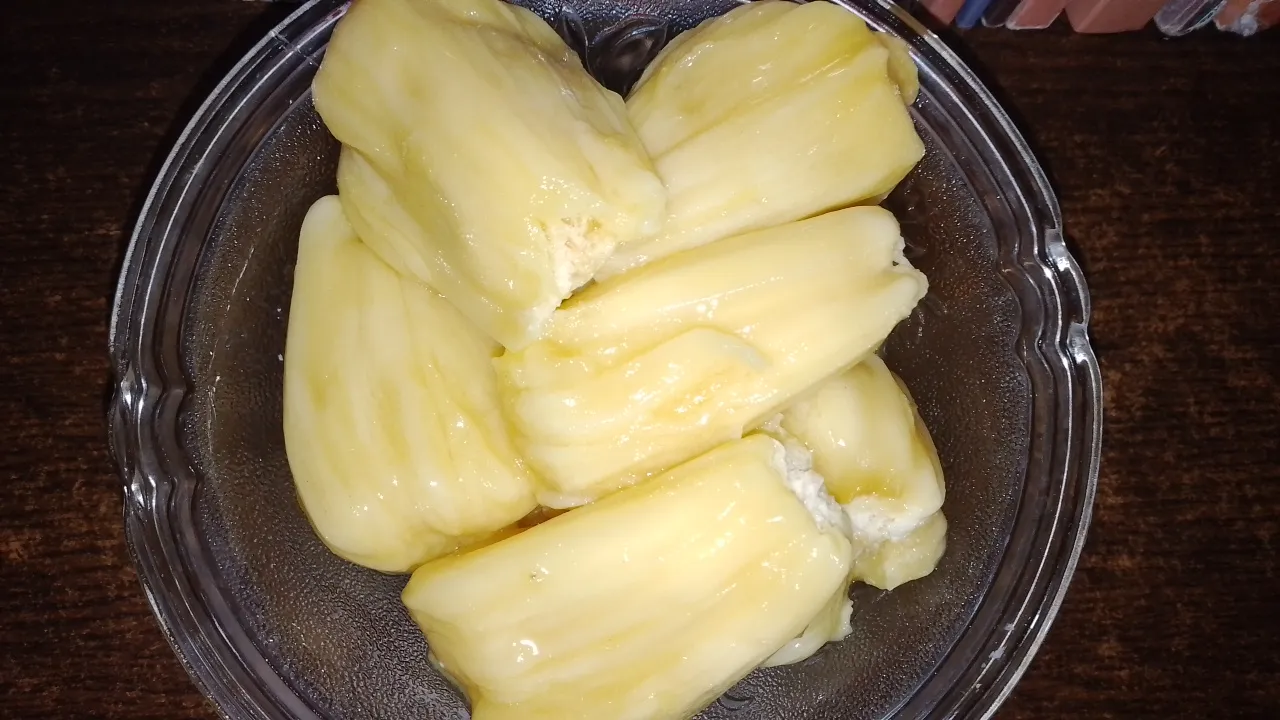Jackfruit is the national fruit of Bangladesh. It is not only the pride of our country, but also a delicious, nutritious and versatile fruit. Jackfruit is a familiar and beloved name in the rural areas of Bengal. As one of the summer fruits, jackfruit is deeply connected with our environment, culture and economy. It is not only delicious to eat, but also nutritious and medicinally beneficial. It is mainly grown in South and Southeast Asian countries. It is cultivated in countries such as India, Sri Lanka, Thailand, Malaysia, Indonesia, etc. in addition to Bangladesh. However, its importance is much greater in Bangladesh as it is considered a national fruit. Jackfruit is cultivated in almost all districts of Bangladesh, but especially Gazipur, Tangail, Mymensingh, Chittagong, Sylhet and Rangpur regions are famous for jackfruit production. The tree can grow up to about 30–40 feet tall and bears fruit once a year. Jackfruit is the largest compound fruit in the world. A mature jackfruit can usually weigh 5–20 kg. In some cases, it can be larger. The outer skin of the fruit is thick, crispy and prickly, but the inner part is soft, sweet and fragrant. Inside the fruit is a yellow pulp, which we usually eat.
Inside this pulp is a large seed that can be boiled or fried. Even the raw part of the jackfruit is used to make curries and stews. It is also sometimes known as 'tree meat' because the raw jackfruit tastes a lot like meat.
Jackfruit is a very nutritious fruit. It contains carbohydrates, vitamins A, C, B6, potassium, calcium, magnesium and fiber.
Although jackfruit is a high-calorie fruit, it has almost no fat. Therefore, it provides energy and eliminates fatigue. It increases the body's immunity and keeps the skin healthy. It is beneficial for the eyes and helps prevent night blindness.
It increases digestion, relieves constipation. The natural antioxidants in it protect the body's cells and prevent aging.
Increases immunity: Regular consumption of vitamin C-rich jackfruit increases the body's immunity. The potassium in jackfruit controls blood pressure and is beneficial for the heart. Vitamin A and antioxidants brighten the skin, reduce hair loss, and due to its fiber content, it helps in digestion and keeps the stomach clean. Calcium and magnesium help in keeping the bone structure strong. In Bangladesh, jackfruit is also important as an economic crop. It is a source of additional income for farmers. During the jackfruit season, the demand for this fruit increases in rural markets. In many areas, jackfruit is processed into dried fruits, pickles, chips and desserts.
In addition, jackfruit seeds are used to make various types of food products which are sold locally and are also exported on a small scale. The wood of the jackfruit tree is also very strong and valuable, which is used for making furniture and for housing.
Jackfruit is easy to cultivate and grows with less care than other trees. The tree is not susceptible to many diseases and is able to withstand the adversities of climate change. As a result, it is a potential crop for sustainable agriculture.
Although jackfruit is healthy, it should not be eaten in excess. Eating too much can cause gas or digestive problems. Eating too much is also not suitable for diabetics, as it is somewhat high in sugar and carbohydrates.
Jackfruit is not just a fruit—it is part of our culture, identity, and food tradition. Its nutritional value, versatile uses, and economic potential have made it a special fruit for Bangladesh. We should properly preserve, research, and develop this type of fruit so that we can use this beneficial fruit better in the future.
I love jackfruit because it is a gift of nature.
▶️ 3Speak
